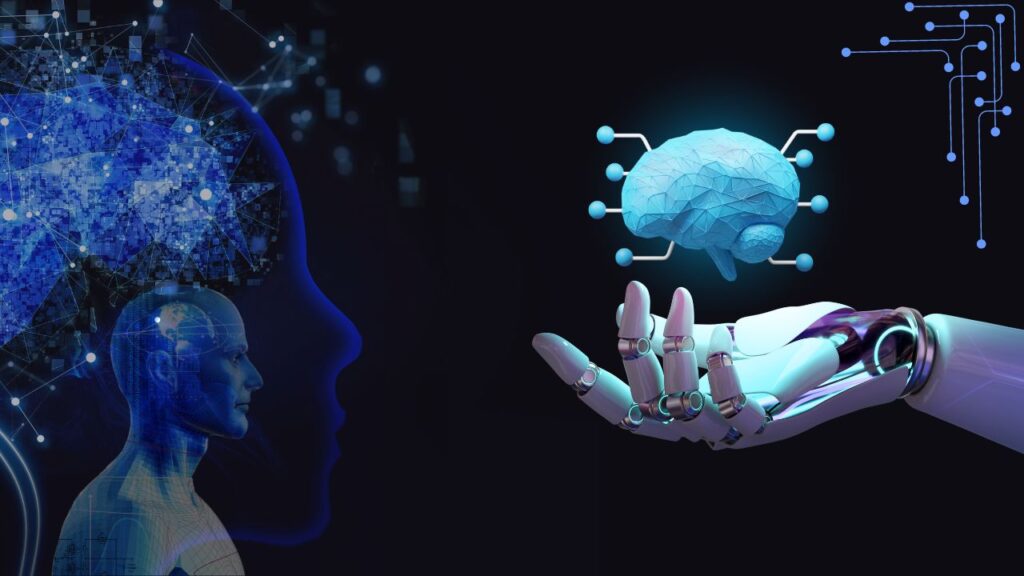Introduction
In its most rudimentary manifestation, Artificial Intelligence within healthcare denotes the utilization of computational algorithms and software to dissect intricate medical data and furnish support in clinical decision-making. This paradigm-shifting technology holds the potential to metamorphose every facet of healthcare delivery, spanning from diagnosis and treatment to patient engagement and administrative chores.
Current Implementations of AI within Healthcare
Assisting Diagnosis
AI-fueled diagnostic apparatuses can scrutinize medical imagery, laboratory findings, and patient dossiers to aid healthcare practitioners in rendering precise and punctual diagnoses.
Tailored Therapeutic Regimens
Through harnessing machine learning algorithms, Artificial Intelligence can sift through vast troves of patient data to customize treatment schemes contingent upon individual attributes and medical chronicles, thereby culminating in more efficacious and individualized care.
Operational Facilitation
AI applications streamline administrative tasks. They include appointment scheduling, EHR management, and insurance claim processing. This frees healthcare providers to focus on patient care.
Pharmaceutical Exploration and Elaboration
AI algorithms can expedite pharmaceutical exploration. They analyze molecular frameworks, predict drug interactions, and identify potential clinical candidates. This accelerates drug development.
Emerging Patterns in AI for Healthcare
Prognostic Analytics
AI-enabled prognostic analytics can prophesy patient prognoses, pinpoint high-risk cohorts, and preemptively intercede to forestall deleterious occurrences, ultimately amplifying patient welfare and curbing healthcare expenditures.
Simulated Health Counsellors
Virtual health counsellors propelled by Artificial Intelligence proffer personalized health counsel, medication cues, and live surveillance, empowering patients to steer their own health trajectories with aplomb.
Meticulous Medicine
AI-driven meticulous medicine harnesses genetic, clinical, and lifestyle statistics to customize treatments for individual patients, thereby optimizing potency and mitigating side effects.
Automated Surgery
Robotic surgical frameworks furnished with AI prowess enable more pinpoint and minimally invasive surgical maneuvers, engendering abbreviated convalescence durations and superior surgical outcomes.
Dilemmas and Constraints
Despite its vast potential, AI adoption in healthcare faces numerous challenges. These include concerns about data privacy and integrity. Ethical dilemmas related to algorithm biases are also significant. Additionally, integrating AI into traditional healthcare systems presents obstacles.
Future Prospects
As we look to the future, AI stands poised to revolutionize healthcare. It can detect ailments early, improve prognoses, speed up research, and make healthcare more accessible.
Impacts on Healthcare Practitioners
The amalgamation of AI will inevitably precipitate a metamorphosis in the roles and obligations of healthcare practitioners, mandating incessant training and pedagogy to ascertain their adeptness in efficaciously collaborating with AI systems and leveraging their full potency.
Investment and Expansion Prospects
The expeditious proliferation of the AI within healthcare marketplace presents lucrative opportunities for investors, nascent ventures, and established enterprises alike, with venture capital inundating innovative AI-driven solutions.
The Stance of Governments and Regulatory Entities
Governments and regulatory entities wield pivotal sway in shaping the future trajectory of AI within healthcare by instituting policy frameworks, standardization endeavors, and ethical parameters to safeguard the safe and conscientious deployment of AI technologies.
Patient Perspectives and Endorsement
Patient acceptance of AI in healthcare hinges on several factors. These include trust in AI technologies. Patient education initiatives also play a significant role. Additionally, cultural and socioeconomic dynamics influence acceptance levels.
Anecdotes and Triumph Narratives
Examples of AI in healthcare show its transformative effect on patients, emphasizing its potential to revolutionize healthcare.
Future Hurdles to Tackle
As AI continues its evolutionary march, it becomes imperative to tackle hurdles such as opposition to change, partiality in AI algorithms, and ensuring equitable access to AI-driven healthcare panaceas.
Collaboration between Technology Behemoths and Healthcare Establishments
Collaboration between technology giants and healthcare institutions is of paramount importance.This collaboration drives innovation, fosters data exchange, and supports joint research efforts to advance AI in healthcare.
Global Adoption Trends
AI adoption in healthcare is increasing globally. However, regional disparities and cultural differences can significantly influence how quickly and effectively AI is implemented and embraced.
Environmental Implications of AI within Healthcare
As AI grows in healthcare, considering environmental impact is crucial. Strategies must reduce energy use and carbon emissions.
Conclusion
In conclusion, AI in healthcare promises to redefine services, improve patient prognoses, and advance research. Confronting hurdles directly is crucial for progress. This shapes a future of efficient, accessible healthcare.

